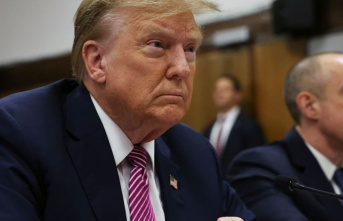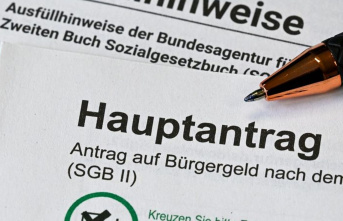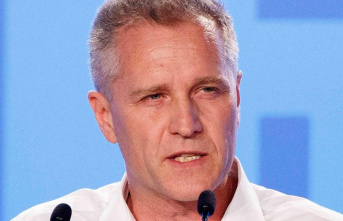Almost three weeks after the repeat election in Berlin, everything points to upcoming coalition negotiations between the CDU and SPD. The SPD opted for this variant on Wednesday evening.
The CDU top candidate Kai Wegner wants to propose to the CDU state executive today to negotiate with the SPD about the formation of a coalition and a new Senate, as the German Press Agency learned from party circles. If these negotiations are successful, the Greens and Left Party, who are still co-governing, would be out of government.
"Respect for the election result"
In the state executive committee of the SPD, there were 25 yes votes and 12 no votes for the negotiations with the election winner, the CDU. SPD state chairwoman and governing mayor Franziska Giffey said the CDU was chosen "out of respect for the election results". The party's previous coalition with the Greens and the Left lost around 250,000 votes in the repeat election on February 12. "You have to take that seriously when considering what you're doing." In addition, there is a clear election winner with the CDU. That has to be taken into account.
In addition, there were more intersections with the CDU in the exploratory talks than with the previous partners, the Greens and the Left. As examples, Giffey cited a "functioning city," housing, and order and security. In the late edition of the RBB "Abendschau" Giffey said that the question was whether you could get a real new start with the previous alliance. "We have serious doubts about that," she said.
Union consults in special session
The Berlin CDU leadership is meeting this afternoon at 5:30 p.m. for a special session. The results of the three exploratory meetings with the SPD and the Greens are to be discussed again. Then the state chairman and top candidate Wegner wants to present the result.
This means that a change of government is imminent in the capital, which is currently still governed by the SPD, Greens and Left, although the previous tripartite alliance would also have a majority in the new parliament. If the CDU and SPD decide on their coalition, Franziska Giffey, who has been the governing mayor since December 2021, would have to leave the Red City Hall.
It is not yet clear whether she will continue to work as a senator. She herself has already offered this and said: "Yes, I am willing, as a senator, to make my contribution to good government work." In the ARD "Tagesthemen" Giffey said such a change would be a very drastic step for her. But she always said she didn't stick to her job. Her motive is to do something for the city. Giffey made it clear that the SPD also wanted to accommodate social democratic policies such as social justice, ecological development and the commitment to a strong economy in possible coalition negotiations with the CDU.
Berlin has long been CDU-led again
Should there be black and red in the capital, Kai Wegner would become the governing mayor. The CDU last provided a head of government in Berlin with Eberhard Diepgen, who was in office from 1984 to 1989 and from 1991 to 2001. He was followed by the two SPD politicians Klaus Wowereit and Michael Müller.
The CDU won the repeat election on February 12 with 28.2 percent. SPD and Greens both got 18.4 percent. With 53 votes, the Social Democrats only have a wafer-thin lead over the Greens. They did worse than ever in a House of Representatives election. The left came to 12.2 percent, the AfD to 9.1. The FDP flew with 4.6 percent from the parliament, which now has five instead of six parliamentary groups.











